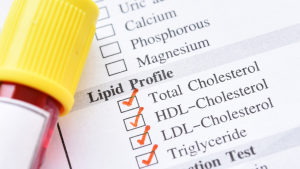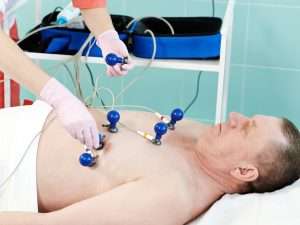Understanding POTS and Its Impact on Daily Life
Postural Orthostatic Tachycardia Syndrome (POTS) is a form of dysautonomia that disrupts blood flow and the autonomic nervous system, leading to symptoms such as dizziness, rapid heart rate upon standing, fatigue, and lightheadedness. While there is currently no cure for POTS, many individuals in Dallas and McKinney are finding that incorporating natural remedies and lifestyle adjustments can significantly improve their symptoms and quality of life.
Effective Natural Remedies to Improve Blood Flow & Reduce Dizziness
Research and clinical guidelines from reputable sources, including Dysautonomia International and the Mayo Clinic, support the following natural strategies to help manage POTS-related dizziness:
1. Hydration & Electrolyte Optimization
The Power of Proper Fluids
Maintaining adequate hydration is one of the simplest yet most effective ways to boost blood volume and stabilize circulation. Consider these tips:
- Drink 2-3 liters of water daily: This supports optimal blood volume and circulation.
- Electrolyte-rich beverages: Options such as coconut water or specially formulated electrolyte drinks can replenish essential minerals.
- Salt supplementation: Increasing dietary salt (under medical supervision) can help maintain blood pressure stability, a key component in managing POTS symptoms.
2. Smart Nutrition – Foods That Support Vascular Health
Fueling Your Body for Optimal Circulation
A nutrient-dense diet can bolster vascular health and support the autonomic nervous system:
- Magnesium-Rich Foods: Incorporate nuts, spinach, and avocado to support nerve and muscle function.
- Iron-Rich Foods: Lean meats, beans, and leafy greens help improve oxygen transport and circulation.
- B Vitamins: Whole grains, eggs, and dairy support energy metabolism and overall autonomic regulation.
3. Compression Therapy
Supporting Blood Flow with Wearable Solutions
Compression garments, such as stockings or abdominal binders, help prevent blood from pooling in the lower extremities. This simple yet effective approach has been shown to reduce dizziness and fatigue by improving venous return and stabilizing blood pressure.
4. Gentle Exercise & Movement
Stay Active Without Overexertion
Engaging in low-impact physical activity can improve circulation, enhance cardiovascular fitness, and prevent deconditioning:
- Recumbent Cycling: Provides a gentle cardiovascular workout while reducing the impact of gravity.
- Seated Resistance Training: Builds strength gradually without overstraining the body.
- Swimming or Water Therapy: The buoyancy of water lessens the stress on joints and supports smooth movement.
5. Stress Management & Improved Sleep
Essential Practices for Balancing the Autonomic Nervous System
Chronic stress and poor sleep can worsen POTS symptoms. Integrate these techniques into your daily routine:
- Mindfulness and Relaxation: Deep breathing, meditation, and yoga can help modulate the stress response.
- Consistent Sleep Routine: Prioritize a regular sleep schedule and a calming bedtime environment. Consider using weighted blankets or cooling pillows to enhance sleep quality.
6. Lifestyle Adjustments for Long-Term Relief
Daily Habits to Enhance Stability and Prevent Symptoms
Incorporate practical home remedies to support long-term POTS management:
- Elevate the Head of Your Bed: This can help reduce morning dizziness by improving venous return.
- Avoid Prolonged Standing: Shift your weight frequently and take regular breaks if you must stand for long periods.
- Eat Smaller, Frequent Meals: This strategy prevents postprandial drops in blood pressure that can worsen symptoms.
- Limit Caffeine and Alcohol: Both can lead to dehydration and exacerbate POTS symptoms.
When to Seek Professional Help
While these natural remedies can offer significant relief, some individuals may require additional medical interventions. If you experience:
- Persistent or worsening dizziness
- Frequent fainting episodes
- Severe fatigue interfering with daily activities
- Blood pressure irregularities despite lifestyle changes
it is important to consult with a healthcare professional. The Heartbeat Clinic offers specialized POTS monitoring and comprehensive treatment services in Texas, with convenient locations serving both Dallas and McKinney.
POTS Monitoring & Comprehensive Care at The Heartbeat Clinic
At The Heartbeat Clinic, our multidisciplinary team provides:
- Advanced Autonomic Testing: To accurately diagnose POTS and assess autonomic function.
- Personalized Treatment Plans: Combining both medical and natural interventions tailored to your unique needs.
- Ongoing Support: Regular follow-ups and education on symptom management, lifestyle adjustments, and treatment progress.
Final Thoughts – Finding Balance and Hope
Managing POTS naturally requires a holistic approach, including hydration, proper nutrition, gentle exercise, and stress management. By incorporating these evidence-based natural remedies, you can improve blood flow, reduce dizziness, and enhance overall well-being.
If you’re located in Dallas or McKinney, The Heartbeat Clinic is here to provide expert care and personalized guidance to help you achieve a more balanced life.
Book an appointment today—Contact Us to start your journey toward better POTS management!
Frequently Asked Questions (FAQs)
- Can POTS dizziness be managed naturally?
Yes, approaches such as proper hydration, smart nutrition, compression therapy, and gentle exercise have been shown to reduce dizziness and improve blood flow. - What foods are recommended for POTS?
Incorporate magnesium-rich foods (nuts, spinach, avocado), iron-rich options (lean meats, beans, leafy greens), and B vitamin sources (whole grains, eggs, dairy) to support vascular health. - How do compression garments help with POTS symptoms?
Compression stockings or abdominal binders improve venous return, preventing blood pooling in the legs and thereby reducing dizziness and fatigue. - Are there specific exercises recommended for POTS?
Low-impact exercises like recumbent cycling, seated resistance training, and swimming are ideal for improving circulation without causing overexertion. - What role does stress management play in POTS treatment?
Effective stress management techniques, such as deep breathing, meditation, and maintaining a regular sleep schedule, help regulate the autonomic nervous system and reduce symptom flare-ups. - Where can I find a POTS treatment center in Texas?
The Heartbeat Clinic provides specialized POTS diagnosis and treatment services, with locations serving both Dallas and McKinney. - How important is hydration for POTS management?
Staying well-hydrated (2-3 liters of water daily) and maintaining electrolyte balance are critical for managing POTS symptoms and improving blood flow. - Can lifestyle changes alone manage POTS?
While natural remedies can significantly improve symptoms, a comprehensive treatment plan that includes both natural and medical interventions is often most effective. - How do I know if my POTS symptoms are worsening?
Worsening symptoms include increased dizziness, frequent fainting, severe fatigue, and persistent blood pressure irregularities. If these occur, seek medical advice promptly. - How can I schedule a consultation at The Heartbeat Clinic?
Contact The Heartbeat Clinic to schedule an appointment and receive a personalized evaluation and treatment plan tailored to your needs.
Disclaimer
This content is provided for informational purposes only and does not substitute professional medical advice. Always consult with a qualified healthcare provider before making changes to your treatment plan.






